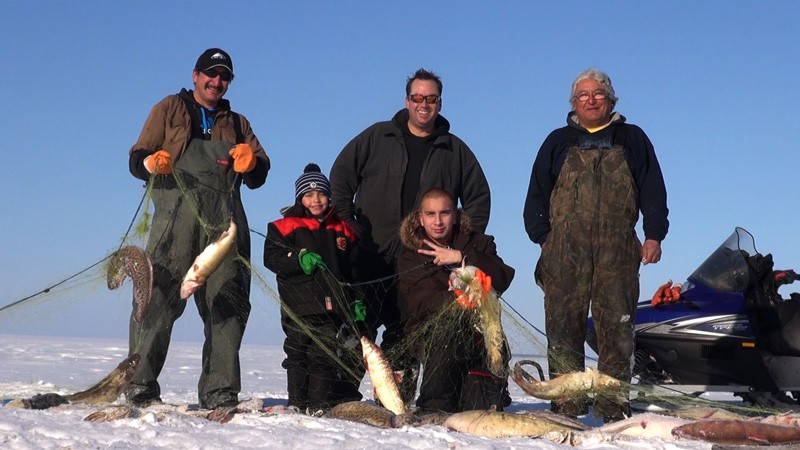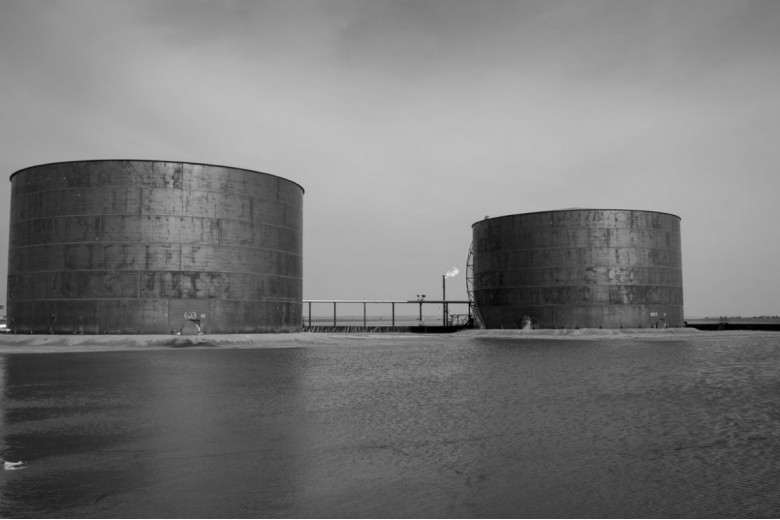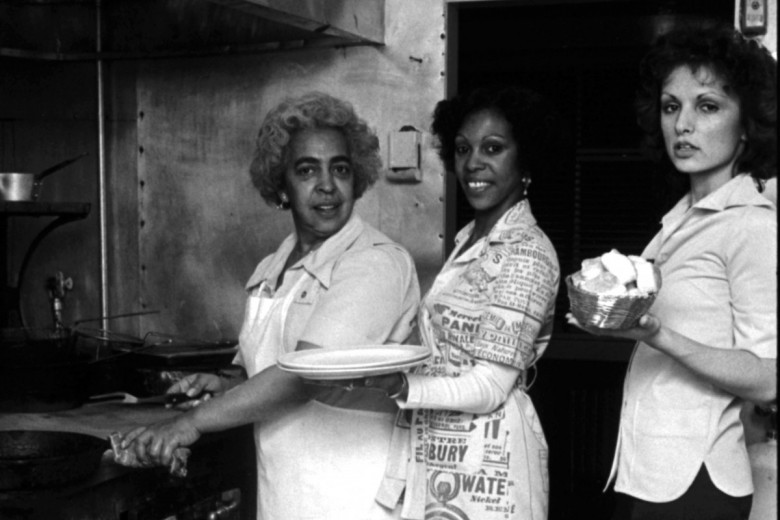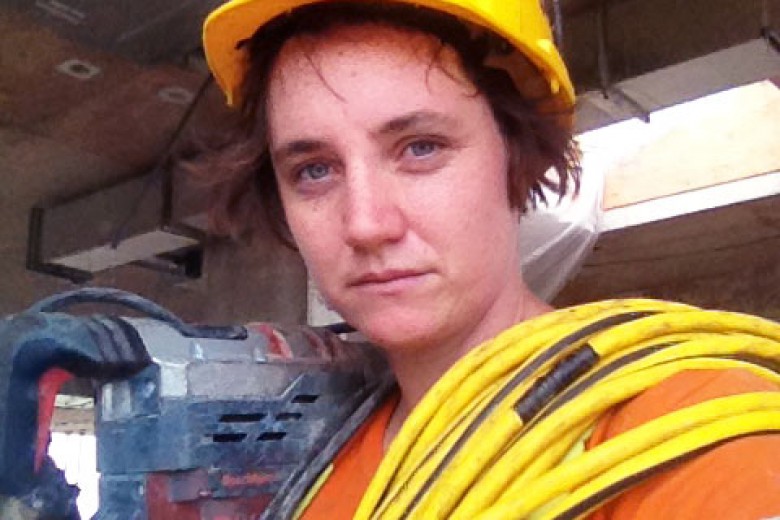
Dean Rennie was shocked the first time he saw the amount of waste generated in the commercial fishery on Lake Winnipeg.
“I was really surprised,” he says about his first outing with local fishers, during which hundreds of pounds of unwanted fish were discarded into the lake. Rennie, a master’s student at the University of Manitoba, is currently working with fishers in the community of Grand Rapids, Man., to document waste in their fishery. “I thought, how many people could that have fed?”
In Manitoba, millions of pounds of edible, nutritious fish are wasted annually, thanks to a combination of forces over which local fishers have little control.
The act of throwing away – on shore or back into the lake – less profitable fish in favour of more marketable species is illegal under federal and provincial law. However, the practice is reportedly widespread, not only in the Manitoba inland fishery but globally. Manitoba’s provincial quota system does not distinguish between species of fish, so when fishers are limited to a strict quota, rather than bring in less valued product, which will count against their seasonal total, fishers will simply throw out, or “bush,” their bycatch. It is estimated that over three million pounds of fish are wasted annually on the Lake Winnipeg fishery, but no official documentation exists on how great the wastage is each season on Manitoba’s largest lake because of the illegality of the practice.
“The average amount bushed in one day is 147 kilograms per fisher,” explained Rennie, who surveyed members of the Grand Rapids Fishermen’s Co-op at an annual general meeting.
The federal Freshwater Fish Marketing Act requires fishers to sell their freshwater catch to a single-desk buyer, the Freshwater Fish Marketing Corporation (FFMC), and opinions among fishers regarding the FFMC are mixed. There is no consensus as to what an alternative model might look like. Under the current system, the FFMC collectively markets the fish from over 2,000 fishers to 14 countries and 20 U.S. states, creating a strong, united position for fishers. The FFMC was founded in 1969 to provide fishers in the western Canadian inland fishery with a stable organization in what was then an unorganized and unprofitable fishery, leaving fishers vulnerable to changing market conditions and predatory purchasing from large processors.
However, critics of the single-desk system point to the waste generated in the Lake Winnipeg fishery as evidence that the current model must be abolished, much like the Canadian Wheat Board’s monopoly in 2012. Some fishers, like those with the WMM Fisheries Co-operative Ltd. in Duck Bay, Man., want to sell carp and other non-target species directly to markets in the U.S. Others, like Saskatchewan Co-operative Fisheries Ltd, in a province that recently opted out of Freshwater Fish Marketing Act, continue to sell their fish to the FFMC despite the opportunity to sell elsewhere.
The problem in Manitoba is that the quota system does not differentiate between species. While FFMC offers a competitive market rate for both pickerel and whitefish, the price differential – approximately $1.80/pound for pickerel and $0.60/pound for whitefish – is substantial. If a quota system that differentiates between the multiple species in Lake Winnipeg were established, fishers might be able to make better use of their catch and, in turn, bring in more pay. A representative from the province claims that Manitoba Conservation and Water Stewardship are reviewing the quota system but gave no indication of how far along they were in that process.
Toward food sovereignty
Many fishers are passionately opposed to wasting fish but struggle to survive in an industry where the price paid per pound has declined over the years while costs such as gasoline, labour, and equipment have only risen.
Fishers in Grand Rapids have come up with a potential solution that could help quantify the actual amount of waste in the fishery while redirecting fish that would otherwise be wasted to hungry people in Winnipeg.
“What we’re trying to do is donate fish, that is normally thrown away, to Winnipeg Harvest,” said Gerald McKay, a fisher from Grand Rapids who has been a commercial fisher on Lake Winnipeg for over 20 years.
McKay came up with the idea of donating bycatch after attending the 2010 Food Matters conference in Winnipeg, where he was a guest speaker.
“They wanted me to talk about food and fishing,” McKay explained. “I wanted to tell the truth about fishing, that it’s not as good as it sounds. We waste a lot of fish.”
Over the course of his presentation, a number of audience members shared stories of rampant hunger among seniors on pensions and children in Winnipeg’s central neighbourhoods. In Manitoba, one in every 20 people relies on food banks throughout the year.
“I kind of realized this was more serious than I thought,” said McKay. “So I made a promise to them that I wouldn’t waste any more fish, that I would donate the fish. That’s how it started.”
It was around this time that Dean Rennie became involved in the project, after meeting McKay in Grand Rapids. According to Rennie, the proposed project would provide “opportunity to collect data on the amount of wasted or bushed fish that is actually going on in commercial fishing industry” while making “use of the bycatch at the same time that we’re studying.” Fishers would receive compensation for their catch by way of a tax credit.
After McKay and Rennie began planning the project with other members of the Grand Rapids Fishermen’s Co-op, they decided to approach Winnipeg Harvest, Manitoba’s largest food bank, to partner in the project. Its mandate states: “Winnipeg Harvest believes that the best way to achieve food security, as defined by the UN, is for everyone to have enough money to buy the food they need and other basic necessities.” Should this project go ahead, it would provide additional income support to fishers on Lake Winnipeg, leading to less reliance on food banks within fishing communities themselves while providing nourishment to those who need it elsewhere in the province.
“Whitefish is full of protein and has the added benefit of omega-3 fatty acids,” said Donald Benham, director of public education at Winnipeg Harvest. “Once some details are worked out, Winnipeg Harvest looks forward to sharing this new resource with people across Manitoba.”
Moving forward
Over two years after McKay came up with the idea, communication between McKay and Rennie and the province is still ongoing.
Rennie believes that while the provincial government continues to block their attempts to move forward with the project, many of their reasons are based on misunderstanding.
“One of their reasons [for not co-operating] is that the practice of bushing is illegal,” Rennie explained. “But nowhere do we disagree that that is the case. We understand that, but we want to make some changes. Simply criminalizing people obviously isn’t stopping this from going on.”
A Manitoba Conservation and Water Stewardship spokesperson told Briarpatch in an email that “department staff have been working with the Grand Rapids Fishermen’s Co-op and Winnipeg Harvest to find a potential opportunity for Grand Rapids fishers to donate their catch to Winnipeg Harvest, while still ensuring the catch is within established quotas necessary for the sustainable management of the Lake Winnipeg fishery.” The spokesperson also indicated that the department was involved in a review of current Lake Winnipeg fishery management and that the current quota system was included in that review. However, no timeline for potential changes was provided.
Despite the delays, McKay, for one, remains hopeful that the project will move forward soon and begin alleviating hunger around the province.
“We’re getting closer,” he says. “Hopefully by the end of this winter we can start donating fish.”






